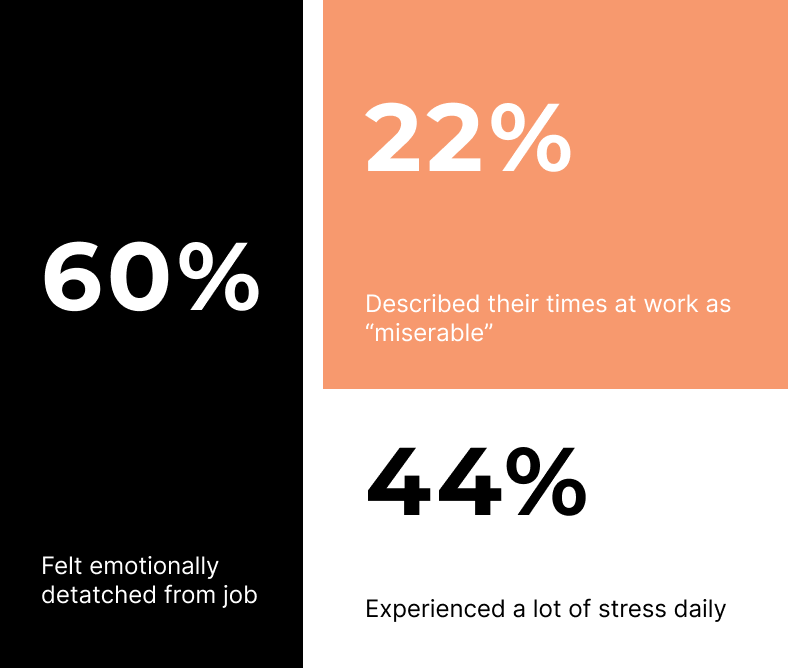With perks like free lunch and mental health counselling in addition to health benefits like biometric screening, employers are looking to improve employees' wellbeing, as such improvements lead to higher productivity and financial outcomes. While this seems like a win-win situation for both employees and the employers, there are some big underlying problems...
The pandemic and shift to remote work has pushed mental and physical wellbeing at work to an all-time low. This is a severe issue for employers, who face significant revenue loss due to low-performing, sick employees. Wellness programs have the potential to improve employee health and employer outcomes.


Although employers are beginning to offer more comprehensive programs along with rewards of higher value, employees still do not engage much in these offerings due to reasons like privacy concerns and lack of accessibility.
Based on user interviews, we found a variety of causes such as privacy concerns, lack of convenience, lack of accessibility, and more - what can we do to address them all?



They focus too much on extrinsic motivation!
This type of motivation consists of factors like money, rewards, and compensation, which is short-lived because people are driven by external factors. For example, they engage in a program due to incentives like a signup bonus, but often forget to continue this engagement for the long run after that incentive is gone.


Intrinsic motivation consists of factors like curiosity, challenge, and growth. Studies have shown that this motivation is long-lasting since people do something because it is inherently interesting or enjoyable. We realized that there is a huge opportunity to target people’s underlying intrinsic motivation to help them engage for the long term!